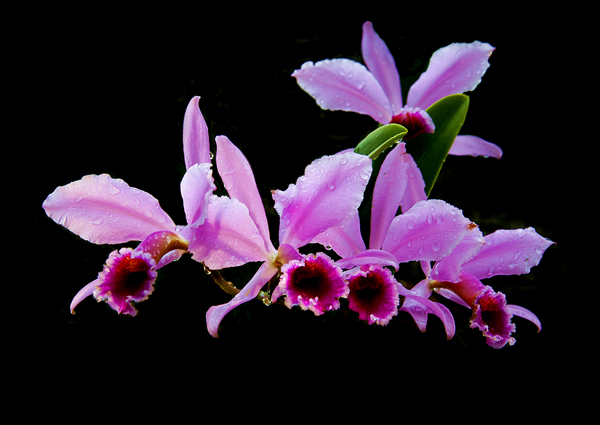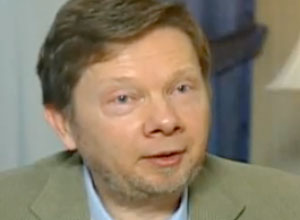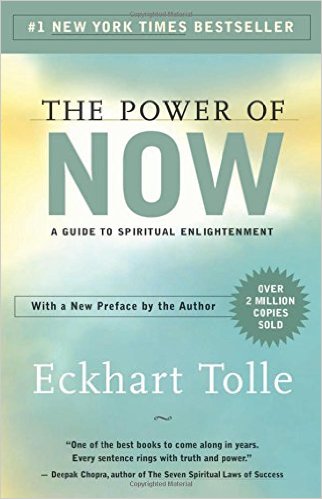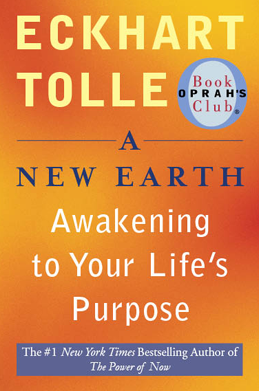|
Word Gems
self-knowledge, authentic living, full humanity, continual awakening
Creativity
"No-mind is consciousness without thought. Only in that way is it possible to think creatively, because only in that way does thought have any real power." Eckhart Tolle

Editor's Essay: Higher Creativity: Liberating The Unconscious For Breakthrough Insights
a mind which is a state of creation itself
21.May.1960. Krishnamurti. How can one free the mind? We are not truly creative, but with mere capacities for talent. I mean a mind which is a state of creation itself. We need a mind that can face its own loneliness and emptiness, a mind unafraid to investigate, to go beyond the limitations of culture-conditioned consciousness. Do not follow any guru, be a light to yourself, uncommitted to any activity considered religious or respectable.
“You can’t make the creative act happen. You have to do certain things, otherwise it won’t happen. But it won’t happen while you are doing them.”
“What is required is an attentive response to something real and other than ourselves, of which we have only inklings at first, but which comes more and more into being through our response to it – if we are truly responsive to it. We nurture it into being; or not. In this it has something of the structure of love.”
- Iain McGilchrist, The Matter With Things: Our Brains, Our Delusions
|
Creativity
Sheldrake and Vernon dialogues
| Blake was pushing against the idea that the world is a great machine, with eternal fixed laws, to be controlled and manipulated rather than a relational dynamic unfolding in which human beings have a huge co-creative part to play. Begging the question, is everything that can possibly happen already there in the divine imagination? Is creativity nothing more than a dusting off of pre-existing eternal archetypes? which means that creativity isn't really creativity at all. |
READ MORE
|
Albert Szent-Gyorgyi, Nobel prize winner who discovered Vitamin C: "Genius is seeing what everyone else sees and thinking what no one else has thought."
Infinite Potential: The Life and Times of David Bohm, David Peat: “Faced with explaining gyroscopic motion, most physics students learn the various formulae, involving conservation of angular momentum, and produce an explanation in a relatively mechanical and formulaic fashion; but Bohm needed a direct perception of the inner nature of this motion. Once as he was walking in the country, he imagined himself as a gyroscope, and through some form of muscular interiorization, he was able to understand the nature of its motion. In this way he worked out, within his own body, the behavior of gyroscopes. The formulae and the mathematics would come later, as a formal way of explaining his insight. From very early on in his scientific career, Bohm trusted this interior, intuitive display as a more reliable way of arriving at solutions. Later, when he met and talked with Einstein, he learned that he too experienced subtle, internal muscular sensations that appeared to lie much deeper than ordinary rational and discursive thought. Without explicitly knowing it at the time, Bohm had returned to that ancient maxim ‘as above, so below,’ the medieval teaching that each individual is the microcosm of the macrocosm. Bohm himself strongly believed himself part of the universe and that, by giving attention to his own feelings and sensations, he should be able to arrive at a deeper understanding of the nature of the universe.”
|
Eckhart Tolle, The New Earth, The Power Of Now
all true artists, whether they know it or not, create from a place of no-mind, from inner stillness

The predominance of mind is no more than a stage in the evolution of consciousness. We need to go on to the next stage now as a matter of urgency; otherwise, we will be destroyed by the mind, which has grown into a monster...
Thinking and consciousness are not synonymous. Thinking is only a small aspect of consciousness. Thought cannot exist without consciousness, but consciousness does not need thought.
Enlightenment means rising above thought, not falling back to a level below thought, the level of an animal or a plant. In the enlightened state, you still use your thinking mind when needed, but in a much more focused and effective way than before. You use it mostly for practical purposes, but you are free of the involuntary internal dialogue, and there is inner stillness. When you do use your mind, and particularly when a creative solution is needed, you oscillate every few minutes or so between thought and stillness, between mind and no-mind.
No-mind is consciousness without thought. Only in that way is it possible to think creatively, because only in that way does thought have any real power. Thought alone, when it is no longer connected with the much vaster realm of consciousness, quickly becomes barren, insane, destructive.
The mind is essentially a survival machine. Attack and defense against other minds, gathering, storing, and analyzing information - this is what it is good at, but it is not at all creative. All true artists, whether they know it or not, create from a place of no-mind, from inner stillness. The mind then gives form to the creative impulse or insight. Even the great scientists have reported that their creative breakthroughs came at a time of mental quietude. The surprising result of a nation-wide inquiry among America's most eminent mathematicians, including Einstein, to find out their working methods, was that thinking "plays only a subordinate part in the brief, decisive phase of the creative act itself."
So I would say that the simple reason why the majority of scientists are not creative is not because they don't know how to think but because they don't know how to stop thinking!
It wasn't through the mind, through thinking, that the miracle that is life on earth or your body were created and are being sustained. There is clearly an intelligence at work that is far greater than the mind. How can a single human cell measuring 1/1,000 of an inch across contain instructions within its DNA that would fill 1,000 books of 600 pages each? The more we learn about the workings of the body, the more we realize just how vast is the intelligence at work within it and how little we know. When the mind reconnects with that, it becomes a most wonderful tool. It then serves something greater than itself...
Many people are so imprisoned in their minds that the beauty of nature does not really exist for them. They might say, "What a pretty flower," but that's just a mechanical mental labeling. Because they are not still, not present, they don't truly see the flower, don't feel its essence, its holiness - just as they don't know themselves, don't feel their own essence, their own holiness.
Because we live in such a mind-dominated culture, most modern art, architecture, music, and literature are devoid of beauty, of inner essence, with very few exceptions.
The reason is that the people who create those things cannot - even for a moment - free themselves from their mind. So they are never in touch with that place within where true creativity and beauty arise. The mind left to itself creates monstrosities, and not only in art galleries. Look at our urban landscapes and industrial wastelands. No civilization has ever produced so much ugliness...
Thinking is no more than a tiny aspect of the totality of consciousness, the totality of who you are. The degree of identification with the mind differs from person to person. Some people enjoy periods of freedom from it, however brief, and the peace, joy, and aliveness they experience in those moments make life worth living. These are also the moments when creativity, love, and compassion arise.
Others are constantly trapped in the egoic state. They are alienated from themselves, as well as from others and the world around them. When you look at them, you may see the tension in their face, perhaps the furrowed brow, or the absent or staring expression in their eyes. Most of their attention is absorbed by thinking, and so they don't really see you, and they are not really listening to you. They are not present in any situation, their attention being either in the past or future which, of course, exist only in them and as thought forms. Or they relate to you through some kind of role they play and so are not themselves. Most people are alienated from who they are, and some are alienated to such a degree that they way they behave and interact is recognized as “phony” by almost everyone, except those who are equally phony, equally alienated from who they are...
Presence is a state of inner spaciousness. When you are present, you ask: How do I respond to the needs of this situation, of this moment? In fact, you don't even need to ask the question. You are still, alert, open to what is.
You bring a new dimension into the situation: Space. Then you look and you listen. Thus you become one with the situation. When instead of reacting against a situation, you merge with it, the solution arises out of the situation itself. Actually, it is not you, the person, who is looking and listening, but the alert stillness itself. Then, if action is possible or necessary, you take action or rather right action happens through you. Right action is action that is appropriate to the whole. When the action is accomplished, the alert, spacious stillness remains. There is nobody who raises his arms in a gesture of triumph shouting a defiant “Yeah!” There is no one ho says, “Look, I did that.”
All creativity comes out of inner spaciousness. Once the creation has happened and something has come into form, you have to be vigilant so that the notion of “me” or “mine” does not arise. If you take credit for what you accomplished, the ego has returned, and the spaciousness has become obscured...
Your friends either go through this inner transformation with you or drift out of your life. Some relationships dissolve, others deepen. You may get laid off from your job, or you become an agent for positive change at your workplace. Your spouse leaves you, or you reach a new level of intimacy. Some changes may look negative on the surface but you will soon realize that space is being created in your life for something new to emerge.
There may be a period of insecurity and uncertainty. What should I do? As the ego is no longer running your life, the psychological need for external security, which is illusory anyway, lessens. You are able to live with uncertainty, even enjoy it. When you become comfortable with uncertainty, infinite possibilities open up in your life. It means fear is no longer a dominant factor in what you do and no longer prevents you from taking action to initiate change. The Roman philosopher Tacitus rightly observed that “the desire for safety stands against every great and noble enterprise.” If uncertainty is unacceptable to you, it turns into fear. If it is perfectly acceptable, it turns into increased aliveness, alertness, and creativity...
The joy of Being is the joy of being conscious. Awakened consciousness then takes over from ego and begins to run your life. You may then find that an activity that you have been engaged in for a long time naturally begins to expand into something much bigger when it becomes empowered by consciousness.
Some of those people who, through creative action, enrich the lives of many others simply do what they enjoy doing most without wanting to achieve or become anything through that activity. They may be musicians, artists, writers, scientists, teachers, or builders, or they may bring into manifestation new social or business structures (enlightened businesses).
Sometimes for a few years their sphere of influence remains small; and then it can happen that suddenly or gradually a wave of creative empowerment flows into what they do, and their activity expands beyond anything they could have imagined and touches countless others. In addition to enjoyment, an intensity is now added to what they do and with it comes a creativity that goes beyond anything an ordinary human could accomplish.
|
|
‘truth is a living thing’
In his lectures, Krishnamurti states, “I am a living thing” or “truth is a living thing.” What is this “living thing”?
As K describes, and as we also come to personally know, when we become intensely alert, especially in a mental state of “no you and no me,” when psychological “distance” collapses between “subject and object,” when there is no existential separation, we will experience “sparks”, flashes of insight.
As we sensitize ourselves to this process – what is this process? – we begin to perceive the mind, the essential self, as a seething, roiling, churning mass of cognitive energy, in constant flux and movement. It begins to feel, very much, like a “living thing.”
What does it mean, “truth is a living thing”? Truth is a word for reality, “what is.” Universal Consciousness (UC), not matter, is the ground of all being, the elemental constituent, of the cosmos (see on the "quantum" page). Matter derives from UC. To say that truth is a living thing is to acknowledge truth’s linkage to UC. And what is UC? We could say that it is the mind of God.
We are individualizing units of UC. And UC is not only a “living thing” but the source of what we call life. We can feel, deep within, this to be true, this “living” reality, this vibrant, dynamic, pulsating “living” essence, throwing off “sparks” of insight, as we "open a channel" to the molding, shaping influence of UC.
All this needs to be actualized, reified, for us to truly understand. But once the process is under way, the “sparks” come every day – pop, pop, pop – as UC, the ultimate and quintessential “living thing,” reconfigures us in Its own image.
|
|
creative insight is a function of “no mind” rather than “more mind”
The following quotations are from Tolle's "New Earth":
“Enthusiasm means there is deep enjoyment in what you do plus the added element of a goal or a vision that you work toward.“
“You will feel like an arrow that is moving toward the target – and enjoying the journey.”
“This is why Ralph Waldo Emerson said that, ‘Nothing great has ever been achieved without enthusiasm.’ The word enthusiasm comes from ancient Greek – en and theos meaning in god. And the related word enthousiazein means ‘to be possessed by a god.’
ride it like a wave
"With enthusiasm you will find that you don’t have to do it all by yourself. In fact, there is nothing of significance that you can do by yourself. Sustained enthusiasm brings into existence a wave of creative energy, and all you have to do then is ride the wave.”
“Through enthusiasm you enter into full alignment with the outgoing creative principle of the universe, but without identifying with its creations, that is to say, without ego.”
“Enthusiasm is the power that transfers the mental blueprint into the physical dimension. That is the creative use of mind, and that is why there is no wanting involved. You cannot manifest what you want; you can only manifest what you already have.“
Editor's note: Over the last twenty years, readers have at times praised my writings, even with extreme commendation. I’m seen, by some, as a “deep thinker,” which, they assume, must be so to have constructed Word Gems with its panoply of insights into mysteries.
While I appreciate a good word now and then, I must protest against this excessive encomium. It’s not realistic. It's not true. Whatever I see can be seen by anyone who will take the time to access the inner person. No one has a corner on the truth, everyone will be taught directly by Spirit, if we allow it.
Ascribing a status of “deep thinker” misconstrues the process. Creative insight is a function of “no mind” rather than “more mind.” Applying this principle to the craft of writing, let me say that there is no such thing as “writer’s block.” When we sense that the “creative muse” is absent, it’s best to go on to something else and simply wait to be “inspired.” If a writer attempts to write when he or she has nothing worthwhile to say, I guarantee that the product will not be good, it won't be great; instead, readers, if they exist, will find themselves unable to get to the wastebasket or the delete-button in time.
you must ride it like a wave
Eckhart is absolutely right. If you are an artist, no matter the discipline, you must wait for enthusiasm to move you; you must wait for "god in you" to express an energy from another dimension; which process is that of accessing Universal Intelligence, Universal Consciousness. And when you know that you're "in the flow," then -- ride it like a wave. It will propel you. And the ensuing artistry, strictly speaking, will not be of you, as such, but will reflect a higher order. This is the wonder and marvel that Vincent Van Gogh tried to express, so often in his letters to brother Theo, as he "saw eternity in everything."
It wasn't always this way for me, but now I experience this phenomenon almost every day of my life. I may have recently finished some new article or inset box and every time, when I do, with "the wave" having receded, a little voice or feeling in my head gives the same speech:
“Well, that writing is done. I guess it was ok, it could have been better, but maybe you did offer at least a little something that was new and helpful. But, you’re all done, buddy. Truth is, I think you got lucky. Can't you understand that you couldn't do that again? Wherever that last insight came from, it’s over, and you’re a dry well now. You know it wasn’t ‘you’ that produced it, and so don’t flatter yourself that lightning will strike again. You’re not going to have any more insights because it’s just not in you.”
I wish I had said that
And so, when this soliloquy comes, I pretty much believe it, because it’s how I really feel. When I'm "off-line," I do feel like a dry well. I don’t feel like a “thinker” at all. I feel like I’m still the same glassy-eyed kid in high school who had no idea what was going on. In fact, this is why Adrian and I comment that we read our own writings to learn from them; virtually, as much as anyone. And sometimes, when I read my own writings, in an unguarded moment, I might remark to myself, "I wish I had said that" -- as some of it seems foreign to me.
possessed by the muse
When a particular writing has been completed, I move on to some other activity. I free my mind. I don’t “try very hard” to be creative. Quite the opposite. I just leave it and put my brain "in neutral." I relax. Writing is hard work, and I can think of other things I'd rather do. And so, when I'm "off duty," I hope I won't have to go back. I'm all done now. Thank you very much.
But then, maybe that same day, or the next day, I’m randomly listening to a song, or watching a movie, or driving, or reading something, or I see something in nature – and then an insight, “coming out of nowhere,” hits me forcibly, and I say to myself, with intensity and almost a breathless quality, “I have to write about this and share it with others,” and sometimes I have to stop the car or whatever it is I'm doing, and write a few notes. And so, once again, with almost no break from the last "vision," we’re off to the races one more time -- the last time, I’m certain.
The truth is, as I intimate, I don't really want to be a writer so much anymore. I've already said more than I know. It's just that, some of the things I'm allowed see are so wonderful that it's like I have no choice, almost a call to duty, but to "shout it from the roof-tops." If I were an Old Testament prophet I'd be pontificating, "The burden of the Lord is upon me."
Anyway, I look forward to a time when I can just ride my horse, in quiet conversation with a friend, in Summerland.

|
|




